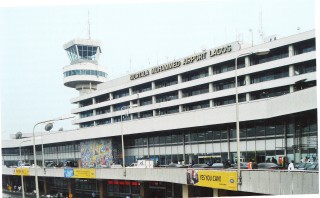A week ago flight operations were disrupted for two days at the Murtala Muhammed International Airport Lagos, following continued power outage. Passengers who were there at the time described the incident as a disaster. “Our international airport has reached a new low,” a passenger told ThisDay.
Most Nigerian airports are in deplorable conditions. They are state-owned, but the government is not willing to privatize them. However, one thing they plan to do is ‘concede’ management to private investors.
On Tuesday, September 6, 2016, the Minister of State for Aviation, Hadi Sirika, said the federal government’s plan to concede the four major airports in the country is still intact. The four airports that will be part of the pilot concession are Nnamdi Azikiwe International Airport (Abuja), Murtala Muhammed International Airport (Lagos), Mallam Aminu Kano International Airport (Kano) and Port Harcourt International Airport (Port Harcourt).
According to Sirika, “Government does not have money to put into these businesses and we don’t want to sell these facilities either; so that is why we are concessioning them because it is the only way to go.’’
Since the change in government last year, talks that government will allow private investors take part in the development of the country’s major airports have intensified. Late last year, the Minister of Transportation, Rotimi Amaechi embarked on a fact-finding tour of facilities and agencies at the Murtala Muhammed Airport. During that visit, Amaechi disclosed that “as a result of limited resources for capital project development, the government is exploring the possibility of private sector participation towards the realisation of the industries’ potential.”
The latest version of the concession plan will give private companies control of Nigeria’s major airports. Currently, Nigeria has 5 international airports and 22 domestic airports. On a yearly basis, 15 million people fly in and out of the country. The government believes the country can do between “70 and 100 million passengers annually, within the next five years, if the right things are put in place.”
Over time, there have been claims of political interference in Nigeria’s aviation industry which is currently being managed by the Federal Airport Authority of Nigeria (FAAN). Some people believe FAAN will do a better job if allowed to work independently as critics see political interference as an impediment to the industry’s growth.
When a government concedes an airport to private investors, that means it has relinquished management. The investors become responsible for developing the airport and making sure it measures up to global standards. The airports are improved to meet modern demands which most Nigerian airports lack. Operational efficiency and profitability of the airports will increase and the non-oil sector of the economy will grow.
However, it is important that the concession agreement is well spelt out. Both parties – the government and private investors – need to come to a mutually beneficial agreement. In the past, Nigeria has unsuccessfully tried to concede the Murtala Muhammed International Airport when it gave control of the airport’s Terminal 2 to Bicourtney Aviation Services Limited (BASL). This is one of the failures that need to be revisited to ensure a solid concession plan.
Similar to what the Nigerian government is trying to achieve is Rwanda’s recently signed deal with a Portuguese construction firm to build the country’s biggest airport. According to the pact, upon completion, the company will run the facility’s operations for 25 years after which the government takes complete ownership. If the concession plan is well designed, such that the Nigerian government still retains ownership, then, the country has more to gain.








